Tools Required
| • | J 8089 Carbon Removing Brush |
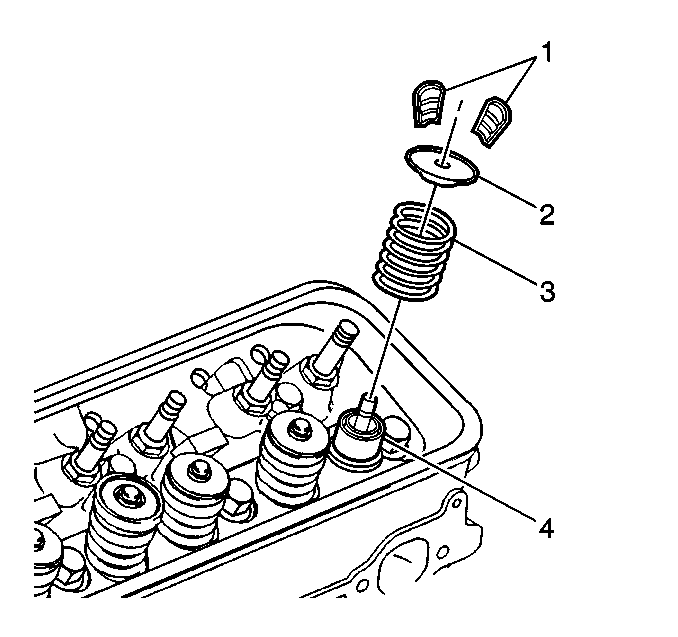
Caution: Wear safety glasses in order to avoid eye damage.
- Clean the valve stems and cylinder heads on a buffing wheel.
- Clean the following components in cleaning solvent:
- Dry the components with compressed air.
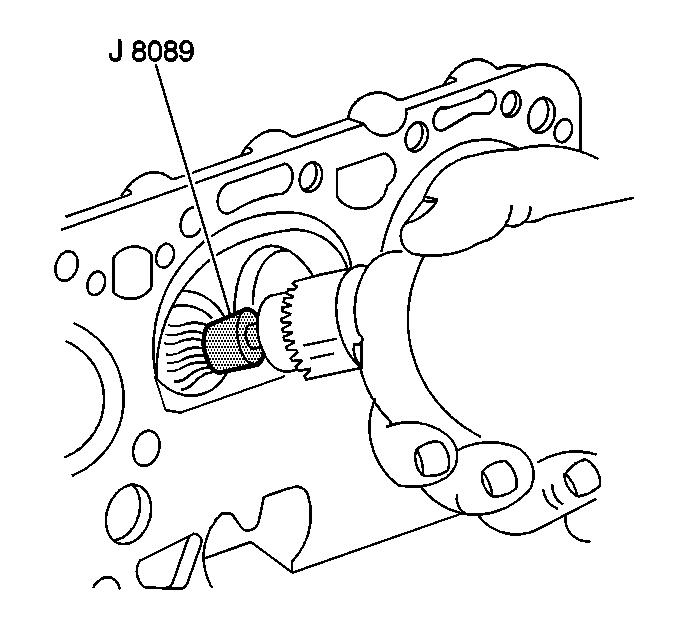
- Use the J 8089
to clean the carbon from the cylinder head combustion chambers.
Be careful not to scuff the combustion chambers.
- Inspect the cylinder head for the following:
| • | Damage to the gasket surfaces |
| • | Damage to the threaded bolt holes |
| • | Burnt or eroded areas in the combustion chamber |
| • | Cracks in the exhaust ports and combustion chambers |
| • | External cracks in the water chamber |
| • | Restrictions in the intake or exhaust passages |
| • | Restrictions in the cooling system passages |
| • | Rusted, damaged, or leaking core plugs |
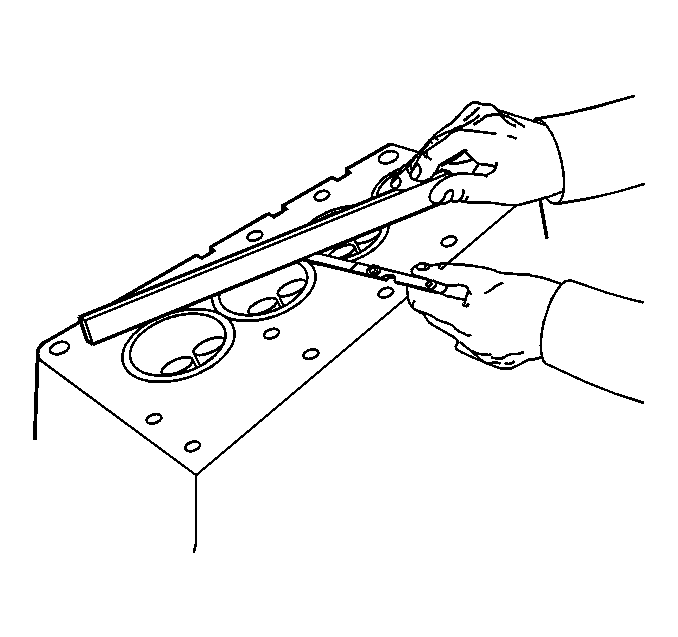
- Measure the cylinder head for warpage
with a straight edge and feeler gage.
| • | A cylinder head block deck with warpage in excess of 0.10 mm
(0.004 in) within a 152.4 mm (6.0 in) area must be repaired
or replaced. |
| • | A cylinder head exhaust manifold deck with warpage in excess of
0.05 mm (0.002 in) must be repaired or replaced. |
| • | A cylinder head intake manifold deck with warpage in excess of
0.10 mm (0.004 in) must be repaired or replaced. |
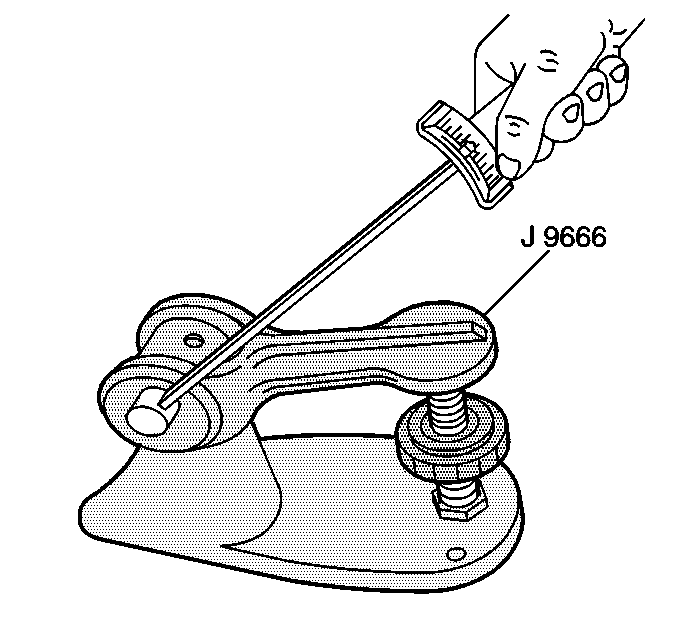
- Use the J 9666
in order to measure the valve spring.
Replace the valve spring if the valve spring tension is less than 338 N
(76 lb) at 43.2 mm (1.70 in).
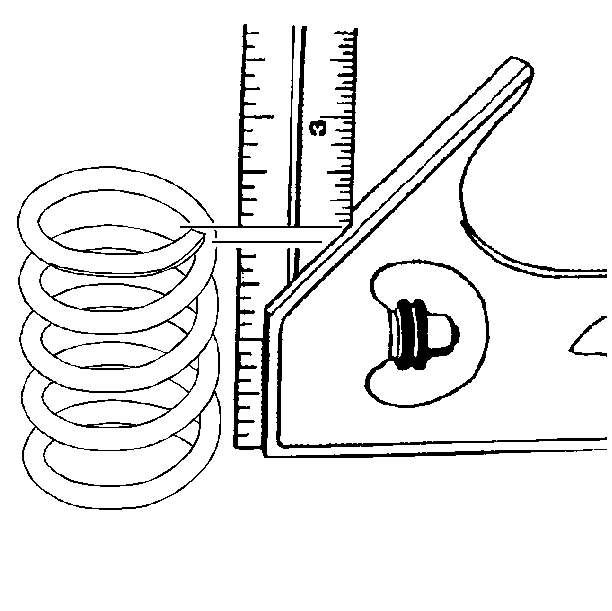
- Inspect the valve springs for squareness.
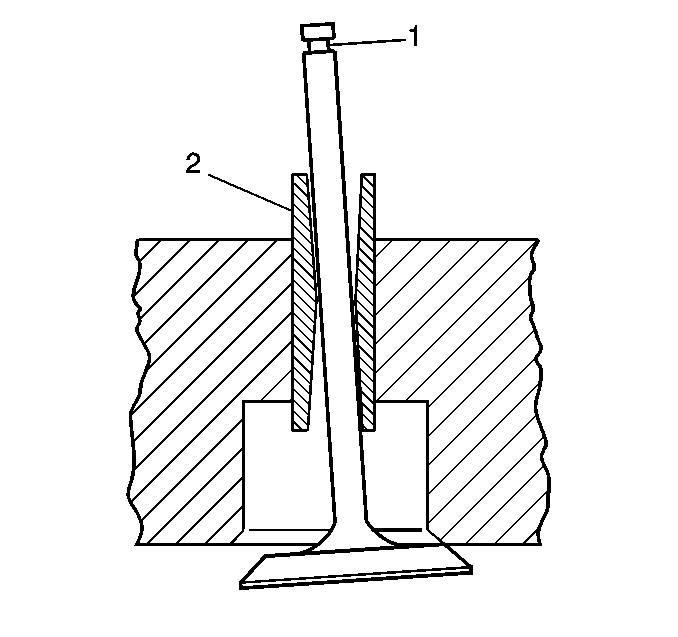
- Valve stems (1) with excessive
guide (2) clearance must be repaired or replaced.
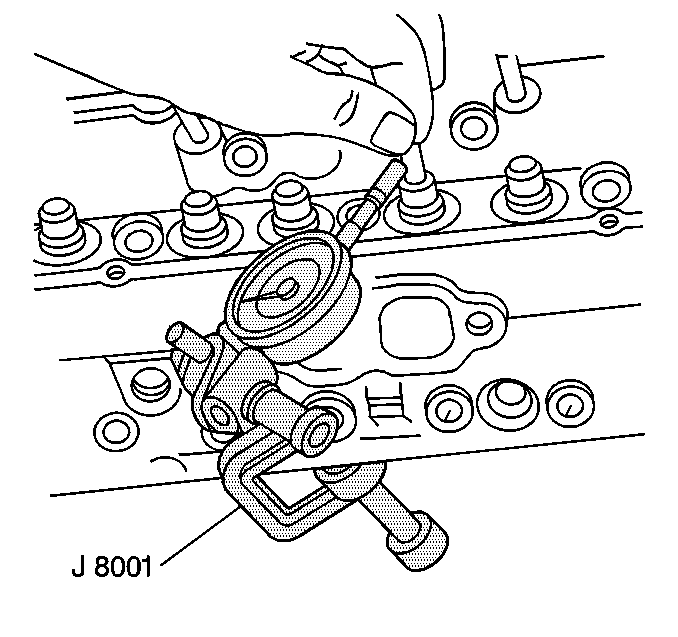
- Measure the valve stem-to-guide clearance.
Excessive valve stem-to-guide clearance may cause an excessive oil consumption
and may also cause a valve to break. Insufficient clearance will result in
noisy and sticky functioning of the valve and will disturb the engine assembly
smoothness.
| 10.1. | Clamp the J 8001
on the exhaust
port side of the cylinder head. |
| 10.2. | Locate the dial indicator so that the movement of the valve stem
from side to side, crosswise to the cylinder head, will cause a direct movement
of the dial indicator stem. |
The dial indicator stem must contract the side of the valve stem just
above the valve guide.
| 10.3. | Drop the valve head about 1.6 mm (0.063 in) off
the valve seat. |







